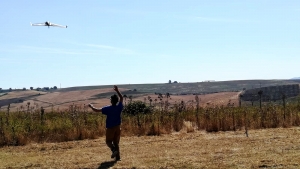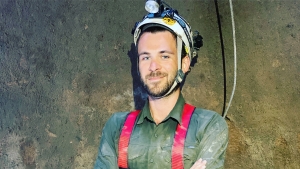
The department’s generous research funding this summer allowed me to continue to participate in the Vulci 3000 Archaeological Project as a Trench Supervisor, under the supervision of Prof. Maurizio Forte. Every season the excavation uncovers important and tantalizing new details about the urban center of this Etruscan and Roman city. While the tombs around Vulci are famous for their rich and evocative grave assemblages of ceramics, jewelry, and artwork, the urban fabric of the city itself is relatively little understood. This is generally case for all of ancient Etruria where tombs provide the bulk of our knowledge of Etruscan civilization and is part of what makes the project’s research so groundbreaking; its investigation into the urban organization of Vulci is on the forefront of understanding the realities of Etrsucan urban life.

Further contributing to the cutting-edge nature of the Vulci 300 Archaeological Project is the utilization of ground penetrating radar, drone based multispectral imaging, and other remote sensing technologies that allow our team to supplement our intensive, but localized, excavation with broad scale nondestructive surveys. These surveys have already helped us fill in some of the large blanks on the map of Vulci’s urban plan and we are beginning to apply to other sites in the vicinity of Vulci. As part of the team this summer I was able to acquire invaluable hands on experience with these technologies which I hope to incorporate into the research plan for my doctoral dissertation and beyond.
